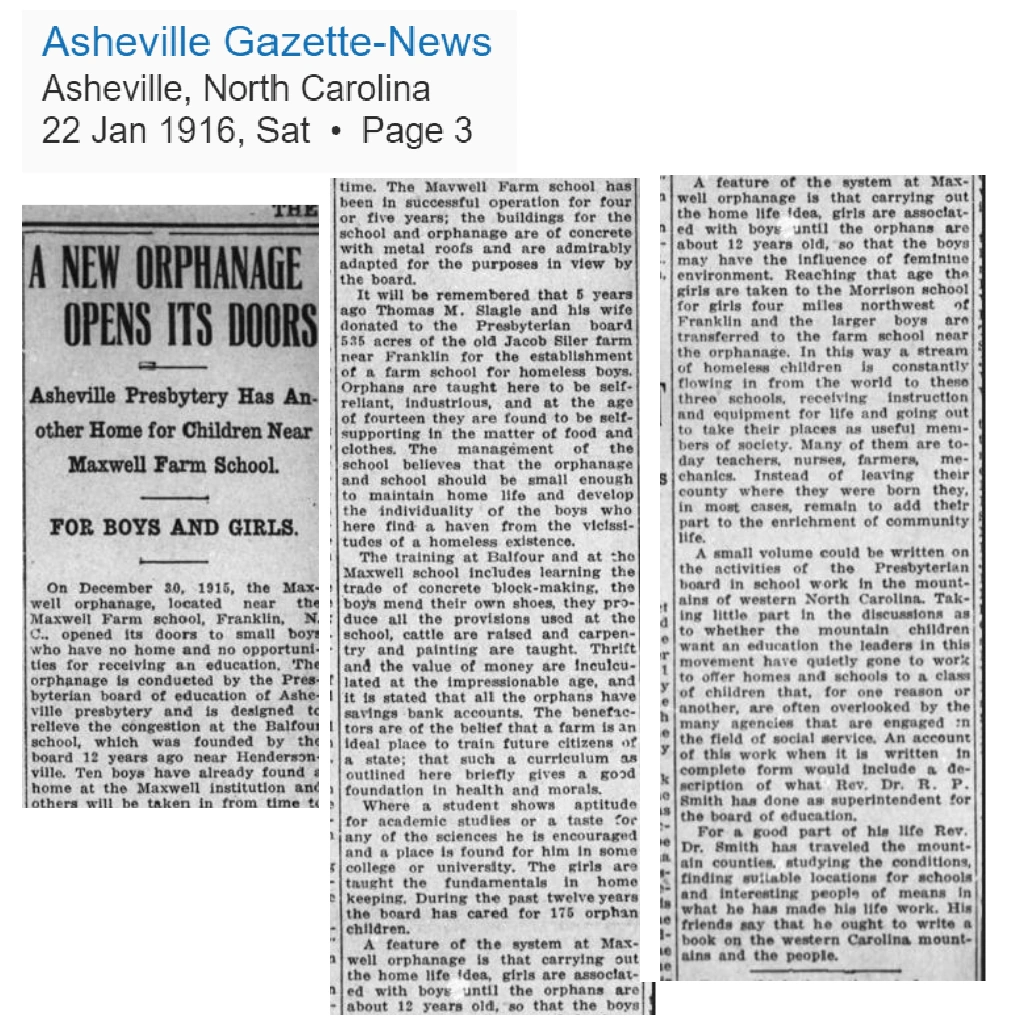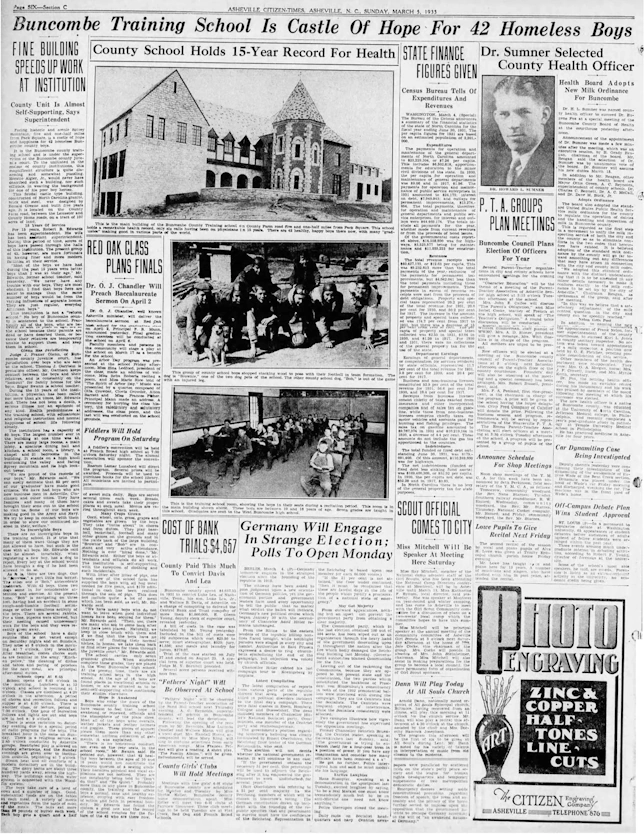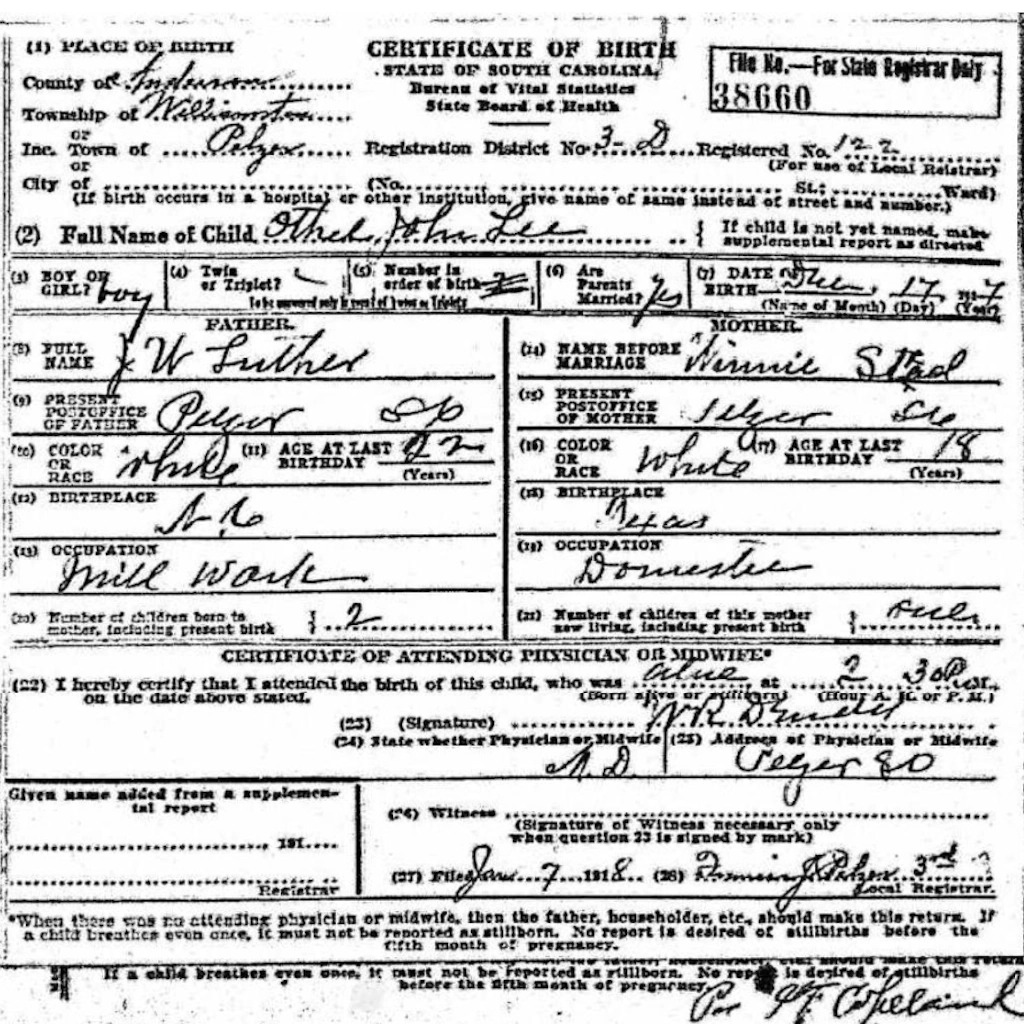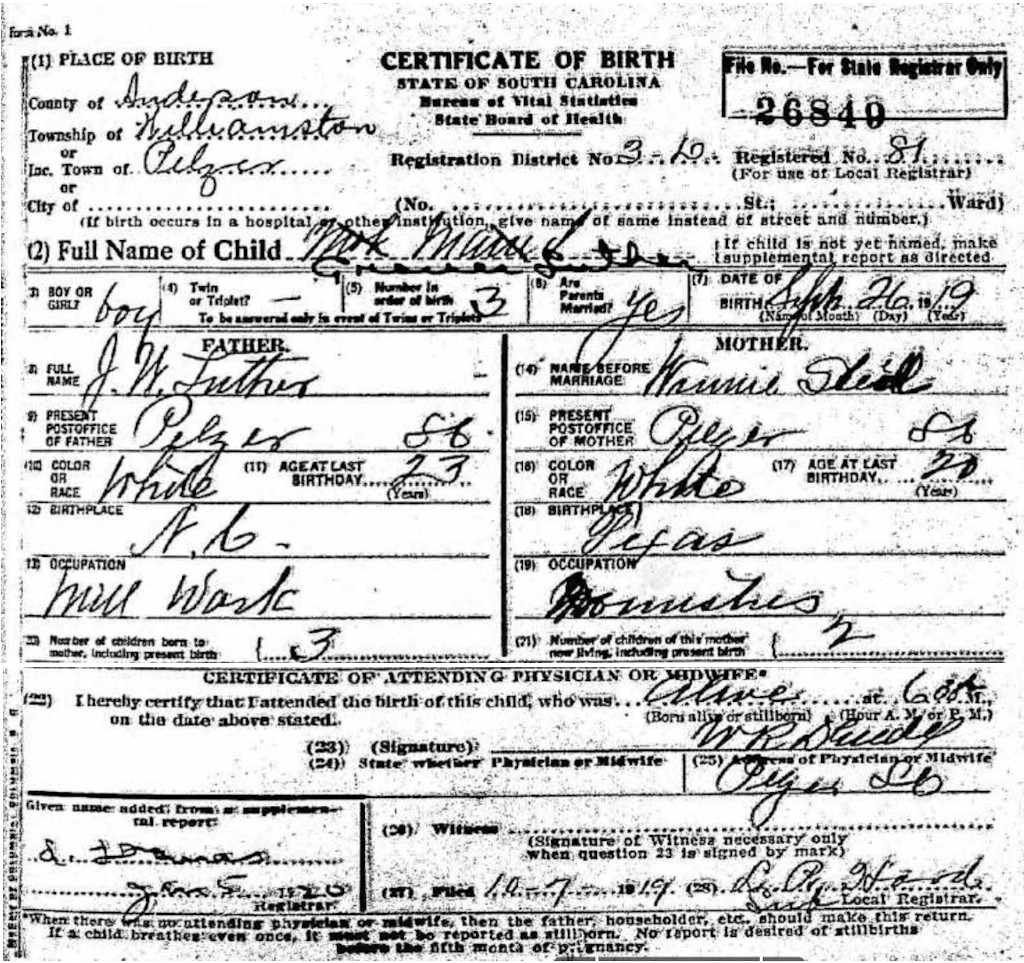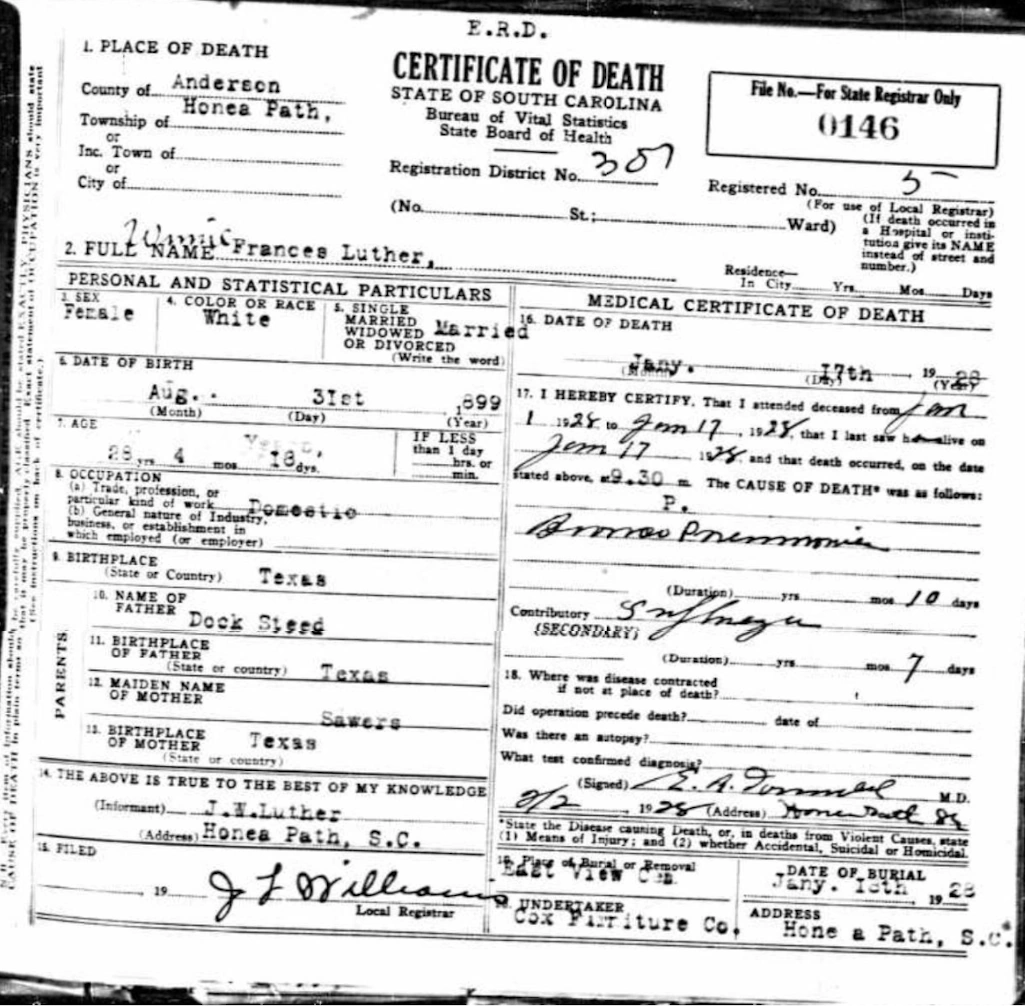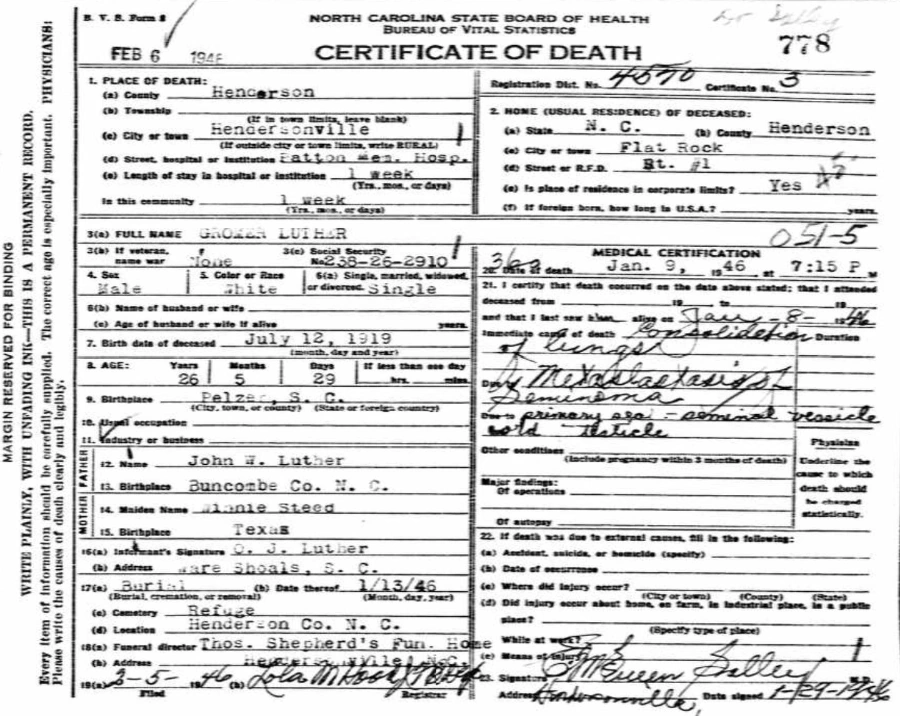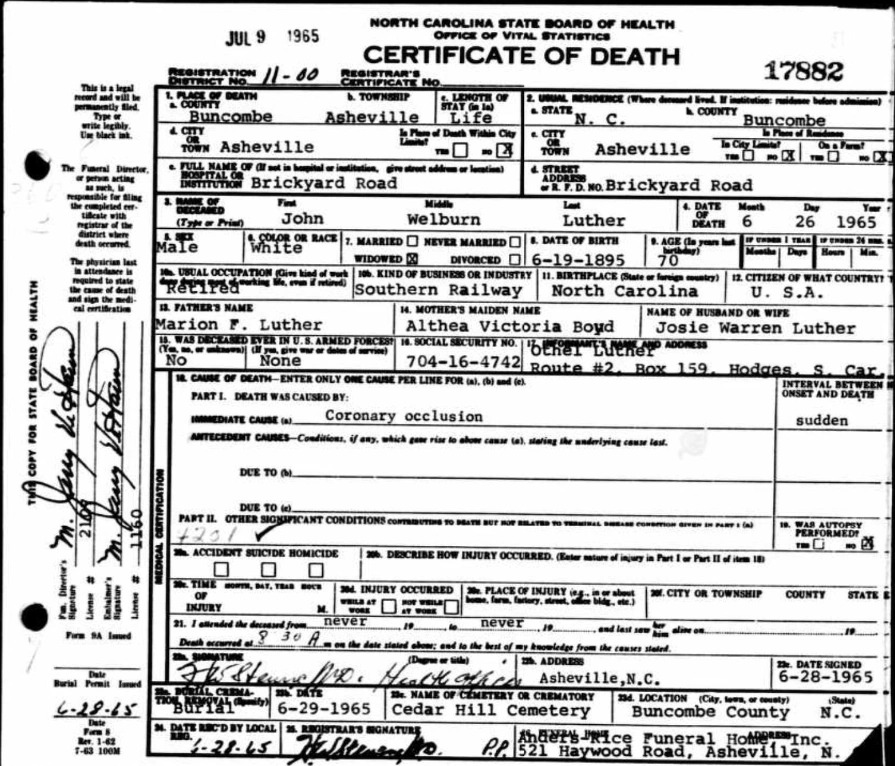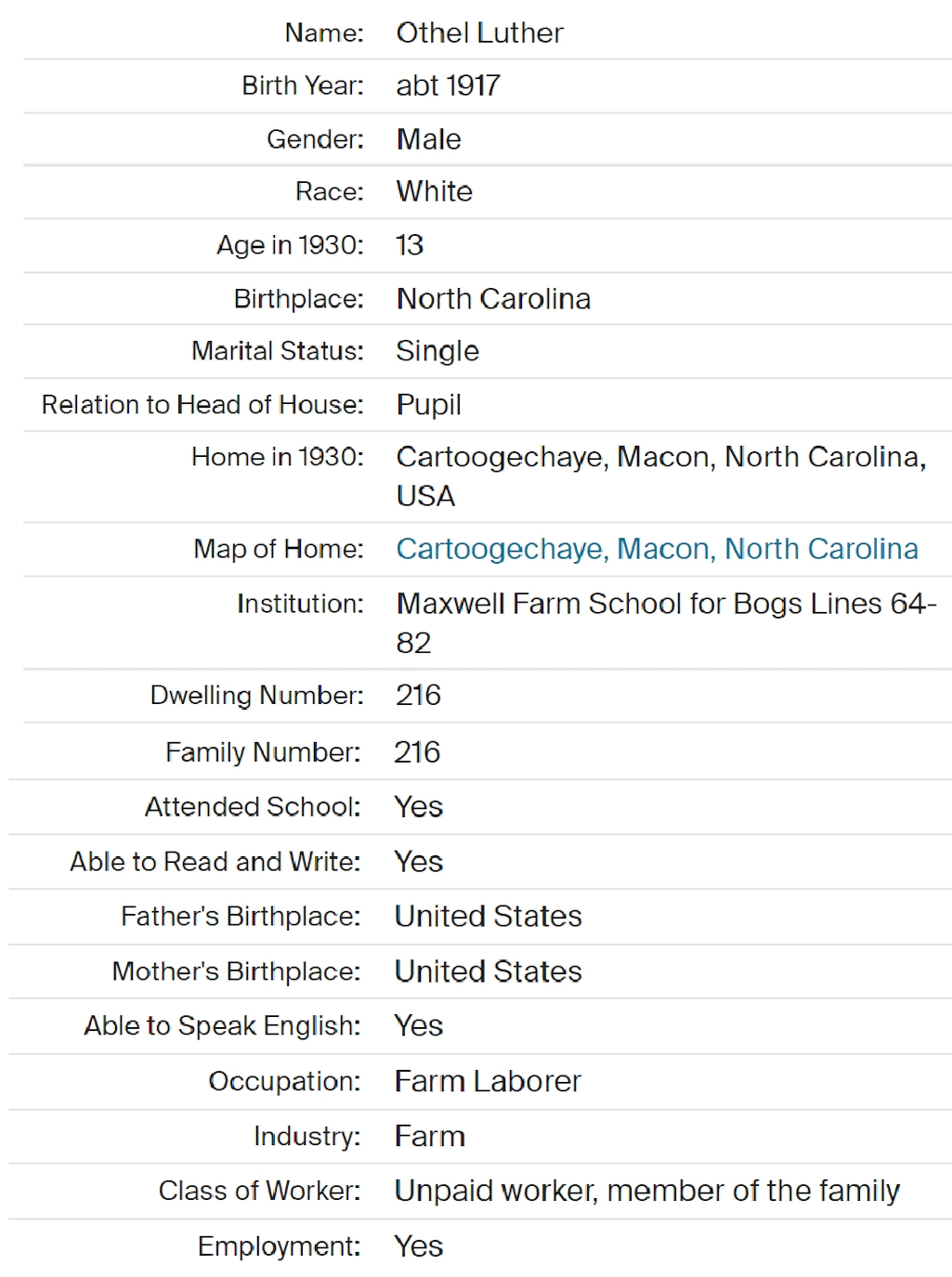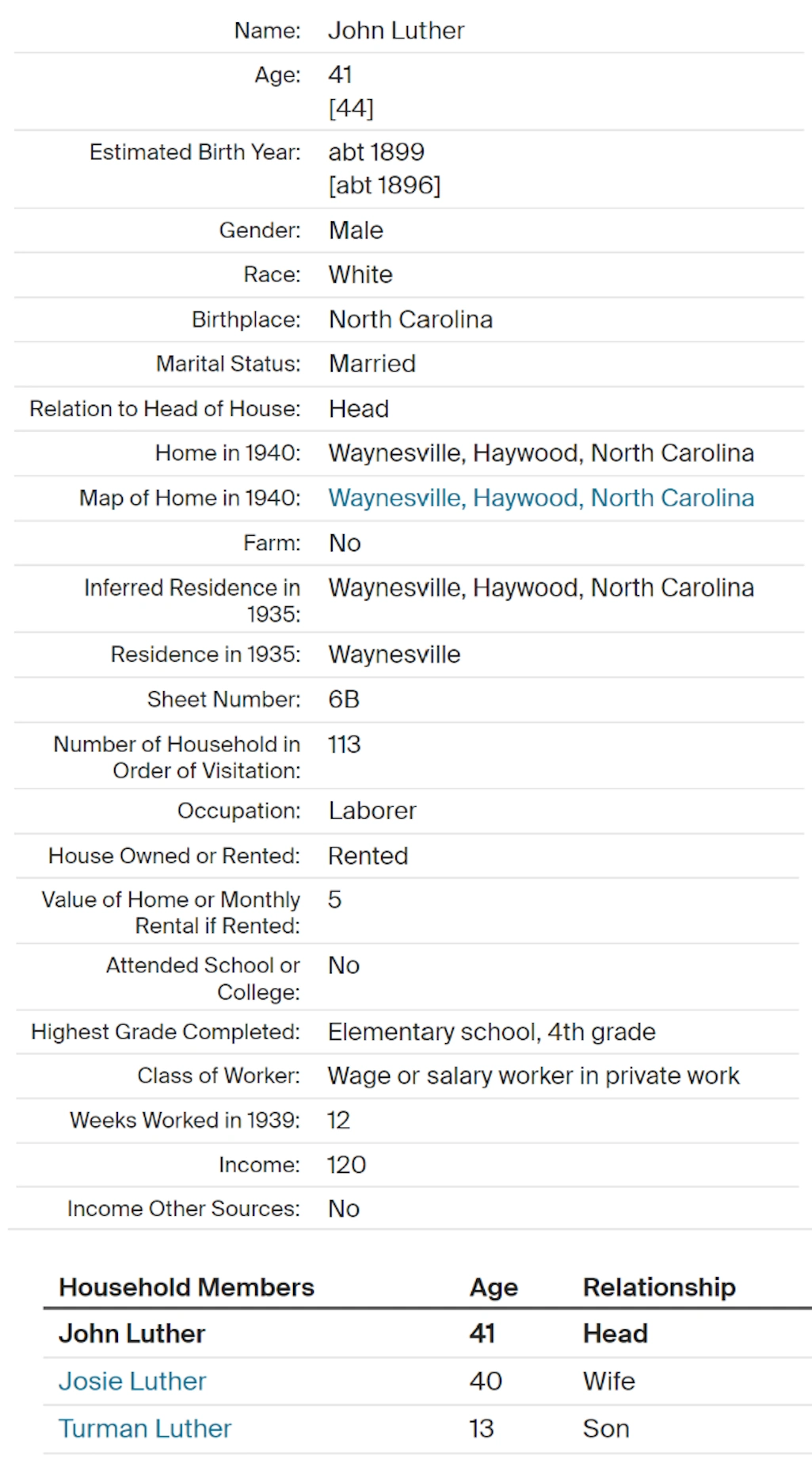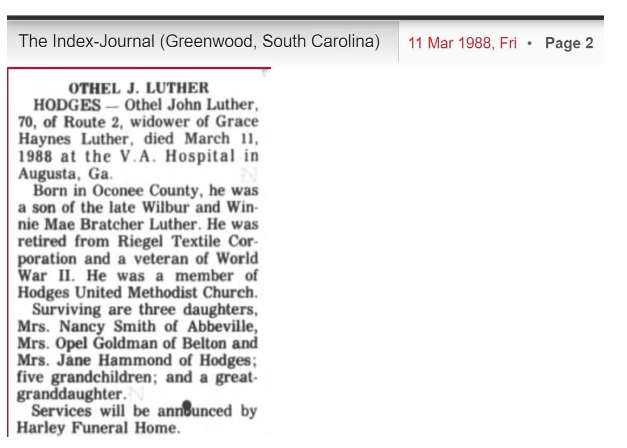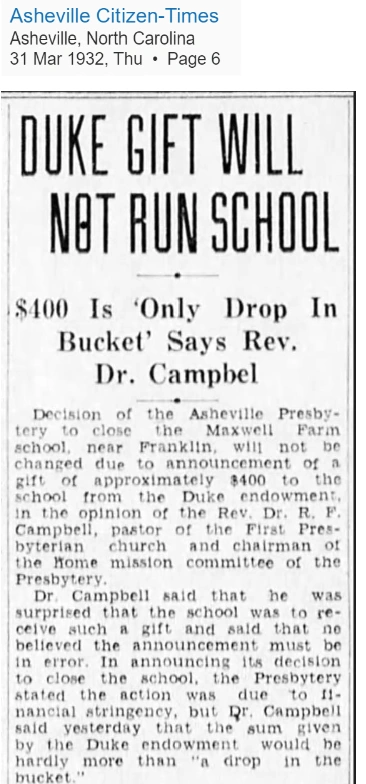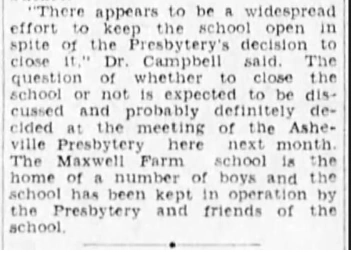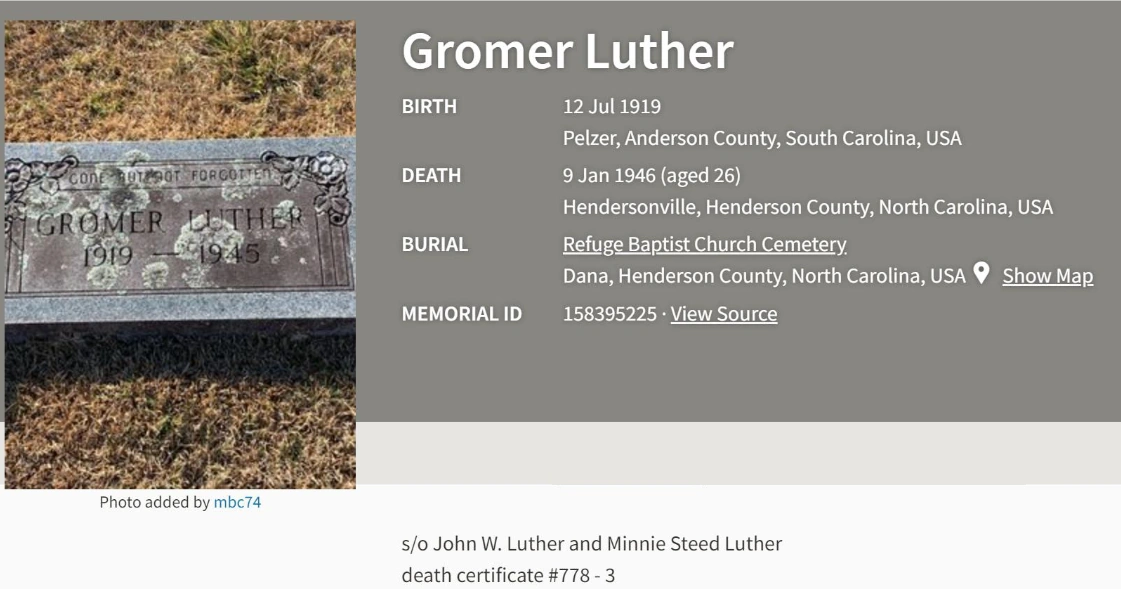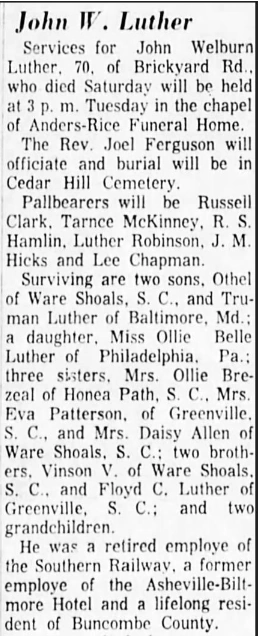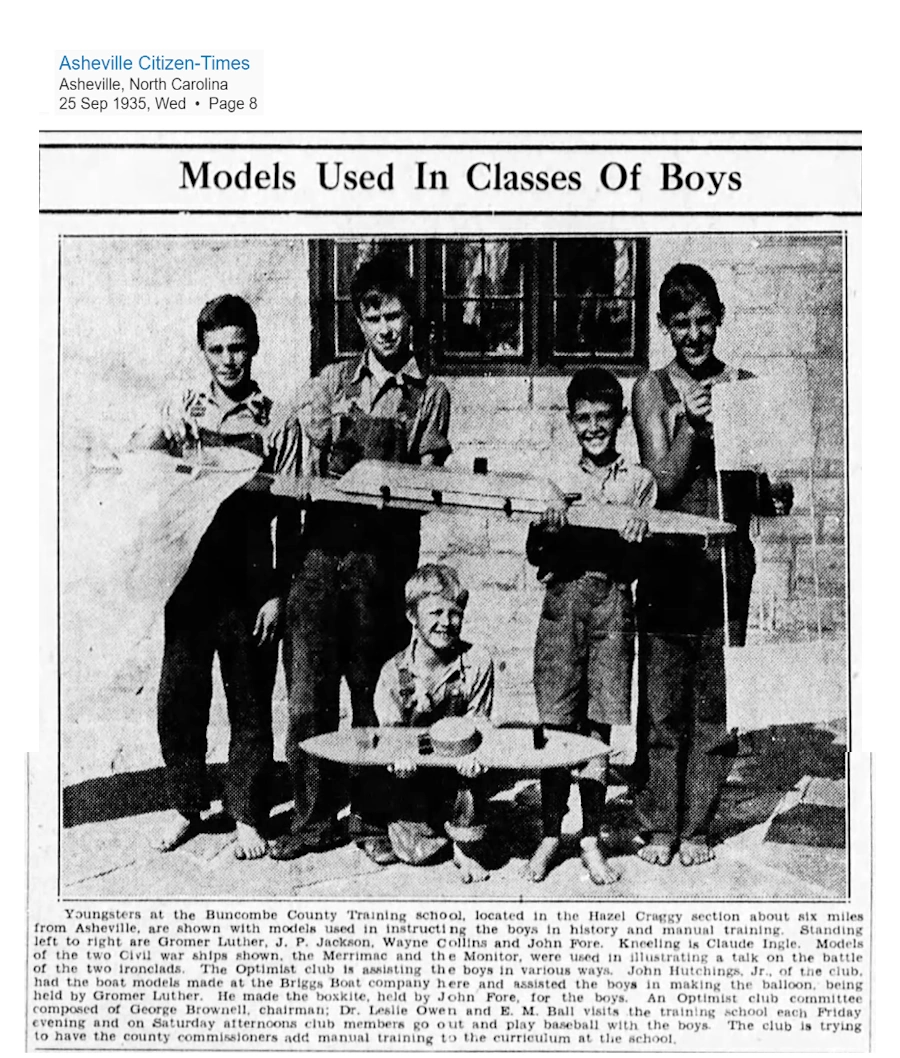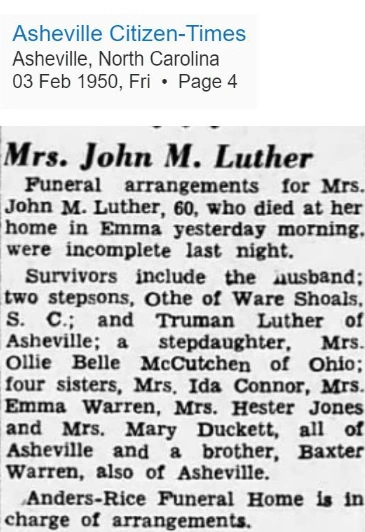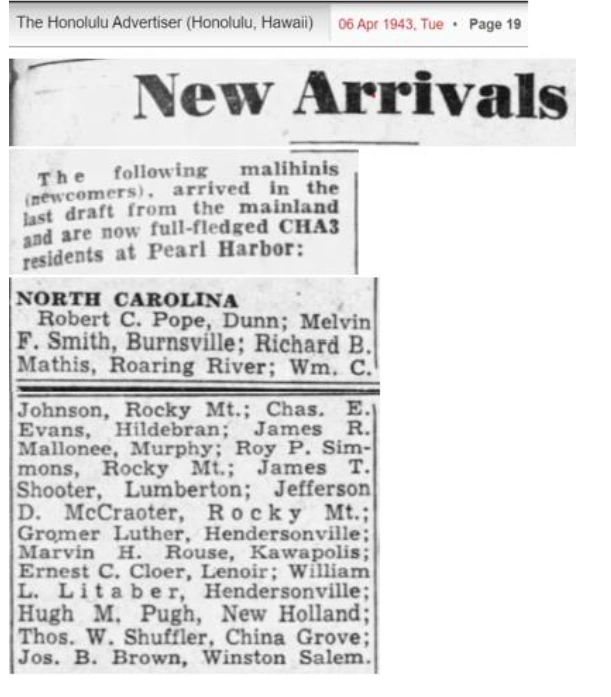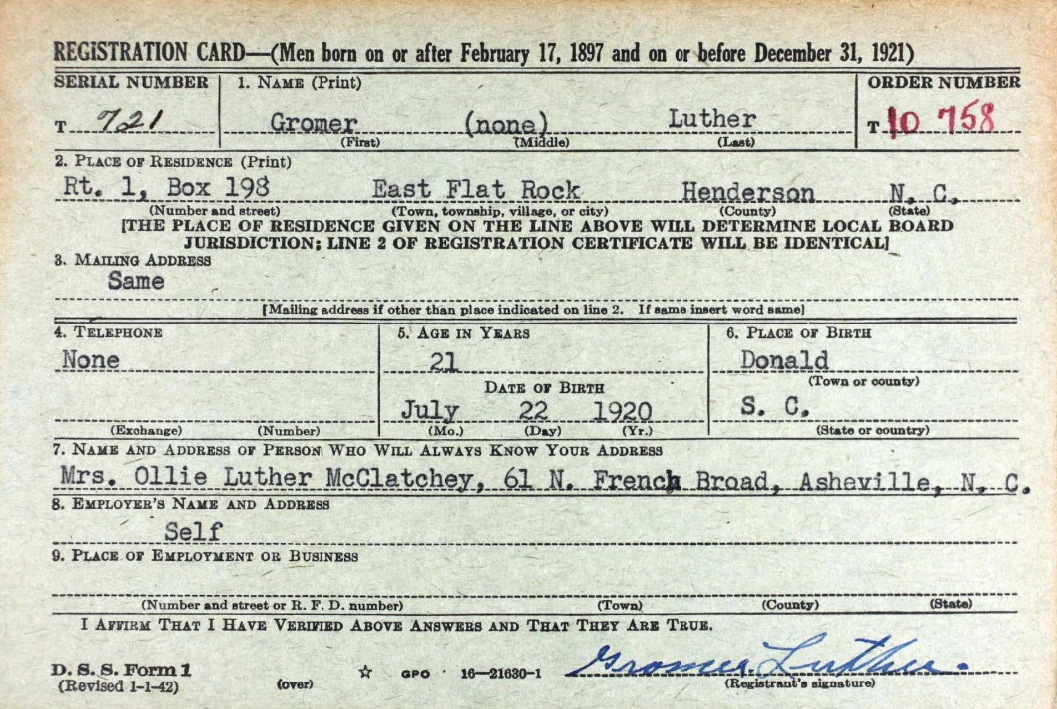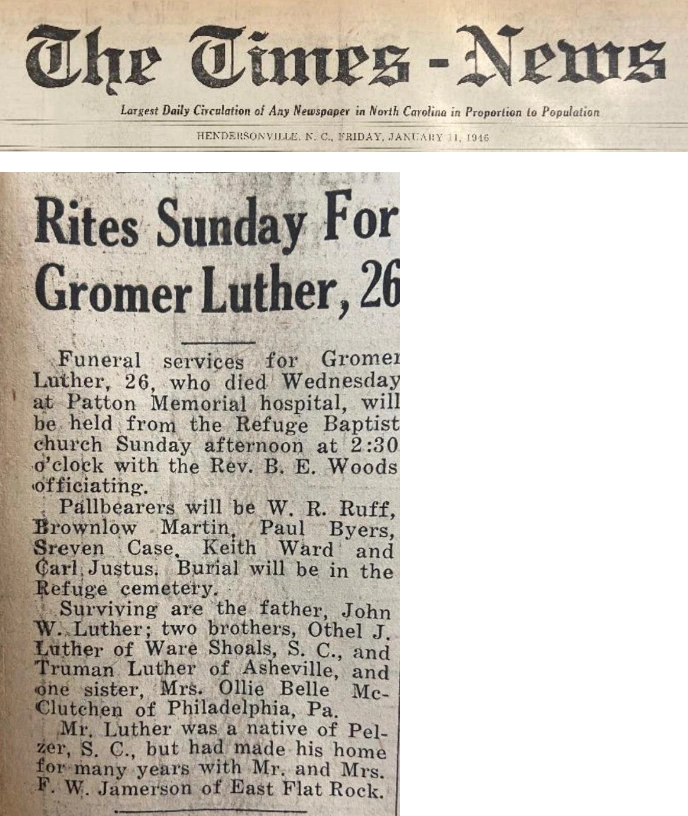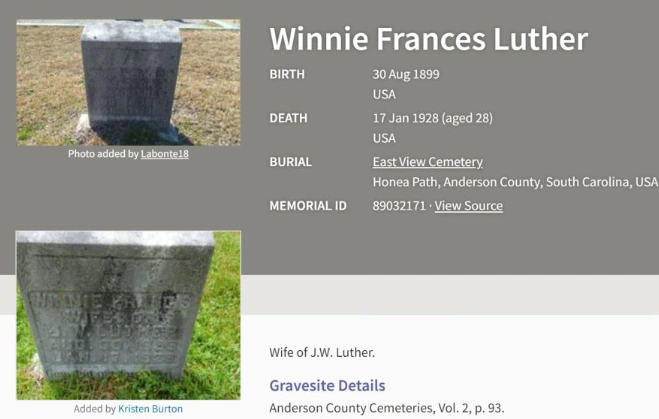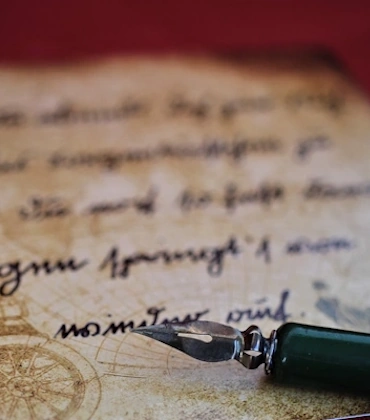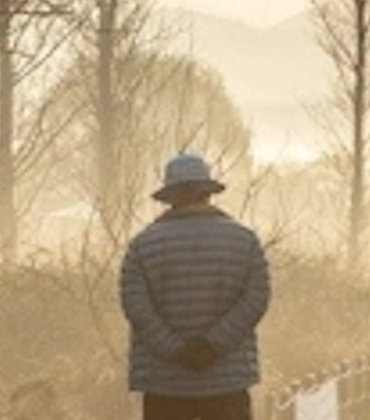
Forget-Me-Not: Forever in Our Hearts
A Promise to Gromer Luther
Scrounging around in a seldom used drawer, I discovered an ancient autograph book with a leather cover. The first entry is dated November 4, 1944: “Lots of good luck and best wishes” signed by Tony Bellersen. The last dated entry was written on June 21, 1945, and states: Dear Luke, Remember the time we spent in San Francisco Ritz Hotel en route from Pearl Harbor to our homes. Best wishes and good luck as we part, and signed by Wilbur O. Thomas of Blue Mountain, Mississippi. Filled with memories of fun times on " the Rock," each entry records friendship and focuses on pleasant memories during World War II. a young man named Gromer who was often in our home. He laughed a lot and was pleasant to have around. Later, my mother spoke of Gromer's running away from the orphanage so he could spend time with my father. In fact, she said, he did it so often that the head of the group home told him not to come back. That released him from any prior commitment to live at the home. And so, Gromer Luther moved into our home and was welcomed.
Not long after being ousted from the orphanage, Gromer heard the news that Pearl Harbor had been bombed by the Japanese. Gromer left for Pearl Harbor on a train taking him to San Francisco and from there to Hawaii. "Don't forget me!" he yelled as he boarded the train. All my family stood waving good-bye as he hung out the window until he was out of sight. And after that, it seemed that every time the train would send out its warning whistle, Mother would say, " That sound makes me think of Gromer." So throughout the war, with those daily blasts from the passing train, we were reminded of Gromer.
He traveled aboard the USS Henderson, which was named after a Marine colonel, on his way to Pearl Harbor (). The ship was named after a Marine Colonel, not the NC county, that's just a coincidence. The ship was a Navy troop transport, which made over 20 transits from California to Honolulu after the bombing of Pearl Harbor to carry people including military, nurses, etc. to Hawai'i. Later the USS Henderson was converted into a hospital ship.
Gromer appeared at the front door of our new residence with beer, luggage, a Hawaiian guitar, and a collection of records. Seeing him back safe and sound brought smiles to our faces, but there was one concern. Daddy had been on the wagon for months. "You know," Mother said, "Floyd has quit drinking." And Gromer said, Fine, I’ll just pass this beer on to someone else. And so, Gromer moved back in with us until he could make other arrangements.
It was such fun having him and his music in the house. And when Christmas came, he gave me a beautiful doll, which I named Cinderella. Cinderella wore a long dress with lace tied around her wrists, so she could lift her skirt as she walked. She also sported a pair of shoes which had real heels; I had never seen real shoes on a doll. I loved Cinderella and decided to keep her all my life. I took really good care of her, but my husband carried her to the dump when he found her on a shelf in our basement. Gone forever, but never forgotten. The doll was always a reminder of Gromer’s caring ways.
Not very long after his return, Gromer fell ill and was forced to be under the care of a doctor. Soon this young man was unable to walk without assistance. The twenty-five-year-old used crutches to move around. One day he accompanied my mother, my sister and me to the Betty Blake Shop on Main Street in Hendersonville. That was a shop with children’s clothes. We had never entered those doors before. It was exciting to see all the merchandise and to receive a lot of attention. There Gromer sat in a chair with his crutches propped beside him while my sister and I tried on dresses and came out to model for him. After a while he paid the clerk for our new clothes, and we left.
Within a very short time, Gromer was hospitalized at Hendersonville’s Patton Memorial Hospital. Our parents visited him frequently during specified hours. Occasionally, the staff allowed my sister and me to go to his room. Speaking was difficult for him, but he asked that we not forget him. In fact, he had a favorite song he played for us before his illness with the "forget me not" theme. He was very ill. It was impossible to fathom the sudden change in his life. He had gone from happy and healthy to sick and dying in a short time.
One night as Daddy drove our family along the street on the way to the hospital, another car slowed and flagged us down. "Gromer's gone," the man said. "He died just a short time ago. I've never seen anyone who wanted to live more, but he had made things right with God." Dad turned the car around and took us back home. "It was cancer?" Mother asked. And Dad expressed his conviction that indeed cancer had killed Gromer. That was the first time I had heard that word: cancer.
Gromer’s sister came to the funeral, and my folks passed on some of his belongings that she took an interest in. She assured us that a tombstone would be erected at his grave site, so that he would be remembered whenever anyone read the inscription. That never happened. Our family often visited the cemetery in those next months, and on Gromer's grave there was only a tag inside a small metal marker to identify who was buried there.
Financially, things got bad at home. We moved. My brother had returned from war. He married and was blessed with a child. Life was different, but there were pictures of Gromer from his Hawaiian days and his guitar and records to keep the wonderful young man alive in our memory.
As my sister and I passed into middle age and my brother reached his late sixties, we would at times reminisce about Gromer. One trip took me by the cemetery. I stopped, but I could not locate his grave. He had been buried not far from my grandparents' grave. No tag with his name, date of birth and death remained, and that had been the only identifying feature on his grave.
My brother suggested that we purchase a gravestone for Gromer. We did‒on the front porch of a resident of Dana, North Carolina, who took care of such things. The stone arrived with Gromer’s name, dates of his birth and death, and my brother had the expression "Gone, but not forgotten" inscribed on the surface. It was placed near his grave site. even though it arrived more than fifty years after his death.
Today death has since claimed the lives of all my childhood family. Only I remain, but it is my wish that Gromer Luther NEVER be forgotten. His presence brought joy to our family. Thanks to Richard Wilson, a volunteer for the Henderson County Genealogical & Historical Society, who discovered a number of articles about Gromer during his boyhood at the orphanage.
End Notes
